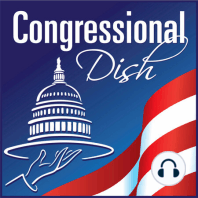50 min listen
CD041: Why Attack Syria?
ratings:
Length:
41 minutes
Released:
Aug 30, 2013
Format:
Podcast episode
Description
While the U.S. Congress remained on vacation, British Parliament was called back to debate a pending attack on Syria. We also look at some facts about Syria that suggest we might be getting into a Shock Doctrine type of situation. Links to Information in This Episode Intro Music: Tired of Being Lied To by David Ippolito (found on Music Alley by mevio) Song: Blood is Thicker Than Oil by The Undercover Hippy (found on Music Alley by mevio) Buy The Shock Doctrine by Naomi Klein (Amazon) Episode CD003: The Free Market vs. US Transcript of the British Parliament debate on August 29, 2013 Reddit thread with videos of the Syrian chemical attack on August 20, 2013 Obama Administration says an attack will not be motivated by regime change According to the British, there have been 14 chemical attacks in Syria The twitter feed of the random Syrian Assad supporter The twelve things about Syria the Assad supporter wanted Americans to know: Syria does support Hezbollah Syria does support the Palestinian resistance Syria is against Israel Syria is Iran's closest ally There is a water shortage in Syria, and in the Middle East in general Syria must share its water with neighbors: Syria has natural gas reserves Syria has oil reserves A third of Syria's budget comes from oil sales Syria is #33 on the world's largest oil producers list Assad's "Four Seas Strategy" intends for Syria to become a transportation hub for fossil fuels Turkey also wants to be the fossil fuel hub July 25, 2011: Syria, Iraq, and Iran signed a $10 billion deal for a natural gas pipeline that would export Iranian natural gas out of Damascus (read this too) August 18, 2011: President Obama announces that Assad must resign The United States sanctions on Iran target Iran's nationalized oil industry Assad banned genetically modified food The State Department pushes genetically modified food around the world on behalf of the American monopoly patent holders USAID distributes genetically modified food in their humanitarian missions Syrian local businesses have been destroyed by financial reforms Syrian citizens are getting poorer since financial reforms What the International Monetary Fund (IMF) wants Syria to do: Strengthening the monetary policy framework and the financial sector 29. Notwithstanding the progress in activating monetary policy in the past two years, Syria's monetary policy framework remains rudimentary and in need of major strengthening to allow the central bank to use indirect instruments of monetary control to operate effectively in a financial system that will increasingly become market-based. Indirect instruments will strengthen the price mechanism in the financial sector, ensuring a more efficient allocation of financial resources and a proper pricing of financial risks. 30. Progress toward this medium-term goal should start by having the central bank gain full control of existing direct instruments. The central bank should have the right to decide on credit ceilings and credit policies of banks with a view to ensuring a pace of credit and monetary expansion consistent with maintaining price stability while fostering economic activity and employment. Banks have to abide by all prudential regulations. Beyond this, the role and responsibilities of the central bank and the ministry of finance in exercising oversight on the banks should be clearly defined. While the government could play a lead role in choosing the board and the management of public banks, the CBS should have the authority to evaluate and approve banks' policies, and procedures related to the credit and investment. 31. Furthermore, the CBS should have operational independence and the institutional capacity to exercise effective banking supervision. Indeed, in the absence of effective banking supervision, the strong credit growth and the rapid opening of the banking system could endanger the soundness of the financial sector. Therefore, the mission urges the authorities to: give the central
Released:
Aug 30, 2013
Format:
Podcast episode
Titles in the series (100)
CD009: What’s In the Fiscal Cliff Bill: The back story on the "fiscal cliff" debacle, the House's sad excuse for a compromise, and the contents of the fiscal cliff bill that became law on 1/3/13. ‘‘American Taxpayer Relief Act of 2012'' TITLE I—GENERAL TAXES SEC. 101. PERMANENT... by Congressional Dish
